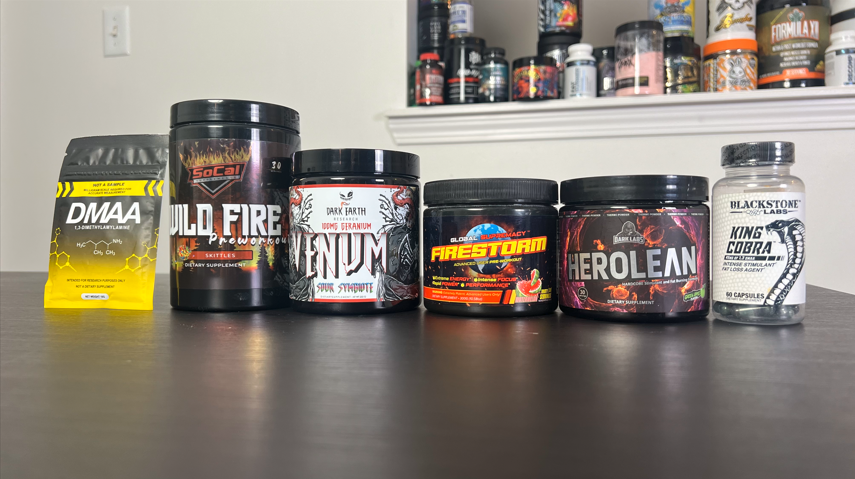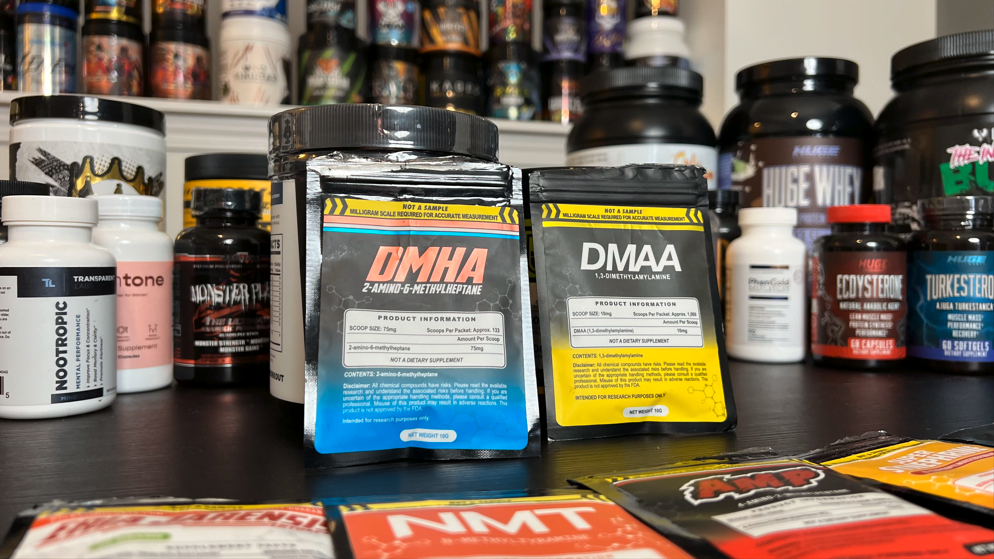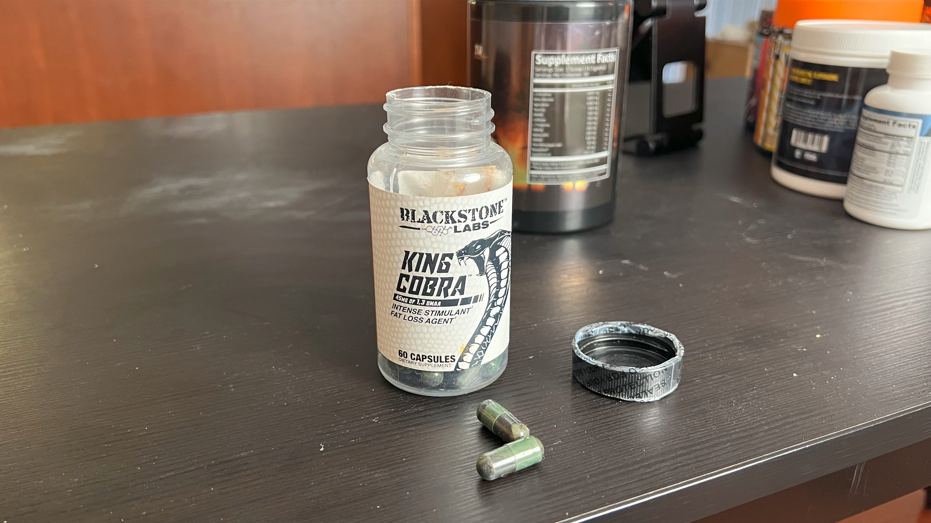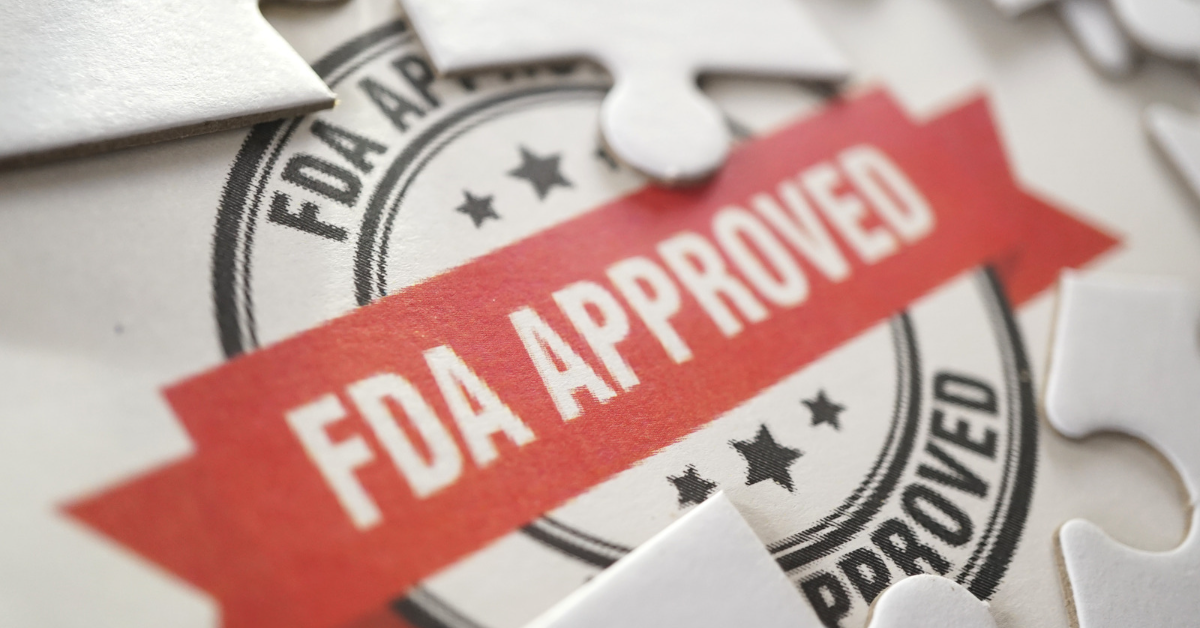Is DMAA dangerous?
This question has sparked debates among fitness enthusiasts, researchers, and regulatory bodies. DMAA, or 1,3-dimethylamylamine, is a stimulant known for its powerful energy-boosting capabilities.
Found in pre-workout and weight-loss supplements, DMAA's popularity is undeniable.
However, its safety profile has been under scrutiny, leading to a divide in opinions and research findings.
At a Glance:
- DMAA: A potent stimulant in fitness supplements.
- Debate: Its safety has been questioned, leading to controversy.
- Purpose: This article explores DMAA's safety, backed by scientific evidence and regulatory perspectives.
As we delve into the world of DMAA, our goal is to provide a comprehensive overview of what DMAA is, its benefits, the concerns surrounding its use, and the latest in scientific research and legal standings.
Whether you're a fitness enthusiast considering DMAA supplements or simply curious, this article aims to equip you with the information you need to make informed decisions.

Author's Experience and Perspective
As the founder of FitFrek and a fitness enthusiast since 2004, my journey with pre-workouts and supplements dates back to 2007.
My firsthand experience with DMAA-containing pre-workouts began around 2010.
While my use of DMAA has been intermittent, it has provided me with unique insights into its effects and the evolving landscape of fitness supplements.
Personal Insights:
- Long-Term Perspective: Witnessing the changes in the supplement industry and DMAA's regulatory journey since 2010.
- Direct Experience: Understanding the nuanced effects of DMAA, from energy boosts to the importance of responsible usage.
- FitFrek's Mission: Launched in 2013, FitFrek has been committed to providing accurate, evidence-based information on supplements, helping fitness enthusiasts make informed decisions.
This article draws not only from scientific studies and regulatory updates but also from my personal experiences and the broader context of FitFrek's mission.
Our goal is to offer a balanced view on DMAA, helping you navigate the complexities of supplement choices in your fitness journey.

Quick Overview: Is DMAA Dangerous?
DMAA, a potent stimulant found in some pre-workout and weight-loss supplements, has been the subject of debate regarding its safety.
When used within the recommended dosages, DMAA can offer benefits like increased energy and focus for workouts.
However, misuse or excessive dosages have been linked to serious health risks, including cardiovascular issues.
Regulatory bodies in several countries have restricted or banned DMAA due to safety concerns.
In summary, DMAA can be safe for healthy adults under proper usage guidelines, but it carries risks that should not be overlooked.

Understanding DMAA
DMAA, short for 1,3-dimethylamylamine, is a powerful stimulant found in various pre-workout and weight-loss supplements.
Its appeal lies in its ability to boost energy levels, enhance focus, and aid in fat loss, making it a popular choice among fitness enthusiasts.
Key Points:
- Origin: Initially used as a nasal decongestant.
- Popularity: Favoured for its strong stimulant effects in the fitness world.
- Uses: Commonly found in pre-workout supplements and fat burners.
Despite its benefits, DMAA's safety has been debated. This controversy stems from its potent effects and the associated risks, especially when misused or taken in high doses. Understanding both the potential benefits and risks is crucial for anyone considering DMAA supplements.
The Safety of DMAA: A Closer Look
The safety of DMAA is a topic of extensive debate.
While some tout its benefits for enhanced workout performance and weight loss, others raise concerns about potential health risks.
Here's what you need to know:
Benefits Highlighted:
- Energy Boost: DMAA is prized for its ability to significantly increase energy levels, making workouts more effective.
- Focus and Concentration: Users report improved focus during exercise, contributing to better workout quality.
- Weight Loss Aid: Its appetite-suppressing properties can help with weight management efforts.
Concerns Raised:
- Cardiovascular Risks: Studies link DMAA to increased blood pressure and heart rate, posing risks for heart-related issues.
- Side Effects: Users have reported headaches, jitters, and insomnia, especially at high doses.
- Regulatory Actions: Due to safety concerns, regulatory bodies in several countries have restricted or banned DMAA in supplements.
In Summary:
- DMAA's benefits for fitness enthusiasts are clear, offering an energy and focus boost.
- However, health risks, particularly related to cardiovascular health, cannot be ignored.
- The legal status of DMAA varies, reflecting ongoing debates about its safety.
Understanding the full scope of DMAA's effects, both positive and negative, is essential for anyone considering its use.
Balancing the potential benefits against the risks is key to making an informed decision.

User Experiences and Misuse
The experiences of DMAA users vary widely, with many reporting significant performance enhancements, while others caution against potential side effects. Misuse of DMAA, particularly in doses exceeding recommended levels, has been a focal point of concern.
Positive Experiences:
- Enhanced Workouts: Users often report more intense and focused exercise sessions.
- Increased Alertness: Many appreciate the heightened alertness and reduced fatigue during workouts.
Negative Experiences and Misuse:
- Excessive Dosages: Some adverse effects are linked to consuming DMAA well above the suggested amounts.
- Combining with Alcohol: Instances of mixing DMAA with alcohol have led to severe health issues, underscoring the dangers of misuse.
- Recreational Use: Beyond fitness, recreational use of DMAA, especially as a party drug, has resulted in harmful side effects.
Key Takeaways:
- DMAA can significantly enhance workout performance and focus when used correctly.
- Misuse, through excessive dosages or combining with other substances, raises serious health risks.
- Responsible use, adhering to recommended dosages, is crucial to minimize potential side effects.
The varied experiences with DMAA highlight the importance of understanding both its potential benefits and risks.
Users should prioritize safety, sticking to recommended guidelines to avoid adverse effects.
Comparative Safety Analysis
When evaluating DMAA's safety, it's helpful to compare it with other substances and consider its usage context.
This comparison sheds light on DMAA's risk profile and helps contextualize the concerns surrounding its use.
DMAA vs. Other Stimulants:
- Caffeine: A common benchmark, caffeine is widely accepted despite similar side effects like increased heart rate and blood pressure. DMAA's effects are often more potent, warranting caution.
- Ephedrine: Previously popular in weight-loss supplements, ephedrine faced bans due to safety concerns. DMAA, similarly scrutinized, is often compared to ephedrine in terms of risk and effectiveness.
Usage Context and Misuse:
- Supplement Dosages: DMAA's safety at recommended supplement dosages has been supported by some studies, suggesting manageable risk when used appropriately.
- Misuse and High Doses: The most severe side effects have been associated with misuse, such as significantly exceeding the recommended dosage or combining DMAA with alcohol.
Regulatory Perspective:
- Bans and Restrictions: Various countries have banned or restricted DMAA in supplements, reflecting concerns about its safety.
- Legal Battles: The ongoing legal disputes around DMAA, particularly involving Hi-Tech Pharmaceuticals, highlight the complexity of its regulatory status.
Key Insights:
- DMAA carries a higher potency and risk profile compared to caffeine but is used in a similar context for its stimulant effects.
- Responsible use within recommended dosages appears to mitigate some safety concerns, though regulatory bodies remain cautious.
- The legal and regulatory landscape around DMAA continues to evolve, influenced by new research and legal arguments.
Understanding DMAA's safety requires a nuanced approach, considering both the substance's inherent risks and the context of its use.
Comparing DMAA to other stimulants and examining the patterns of misuse helps clarify the debate around its safety.
Comparative Safety Analysis
When evaluating DMAA's safety, it's helpful to compare it with other substances and consider its usage context.
This comparison sheds light on DMAA's risk profile and helps contextualize the concerns surrounding its use.
DMAA vs. Other Stimulants:
- Caffeine: A common benchmark, caffeine is widely accepted despite similar side effects like increased heart rate and blood pressure. DMAA's effects are often more potent, warranting caution.
- Ephedrine: Previously popular in weight-loss supplements, ephedrine faced bans due to safety concerns. DMAA, similarly scrutinized, is often compared to ephedrine in terms of risk and effectiveness.
Usage Context and Misuse:
- Supplement Dosages: DMAA's safety at recommended supplement dosages has been supported by some studies, suggesting manageable risk when used appropriately.
- Misuse and High Doses: The most severe side effects have been associated with misuse, such as significantly exceeding the recommended dosage or combining DMAA with alcohol.
Regulatory Perspective:
- Bans and Restrictions: Various countries have banned or restricted DMAA in supplements, reflecting concerns about its safety.
- Legal Battles: The ongoing legal disputes around DMAA, particularly involving Hi-Tech Pharmaceuticals, highlight the complexity of its regulatory status.
Key Insights:
- DMAA carries a higher potency and risk profile compared to caffeine but is used in a similar context for its stimulant effects.
- Responsible use within recommended dosages appears to mitigate some safety concerns, though regulatory bodies remain cautious.
- The legal and regulatory landscape around DMAA continues to evolve, influenced by new research and legal arguments.
Understanding DMAA's safety requires a nuanced approach, considering both the substance's inherent risks and the context of its use.
Comparing DMAA to other stimulants and examining the patterns of misuse helps clarify the debate around its safety.

Legal Disputes and Final Rulings
Legal Disputes:
- Hi-Tech Pharmaceuticals vs. FDA: A landmark case, focusing on DMAA's legal status. Hi-Tech Pharmaceuticals contended that DMAA, being naturally derived, should be allowed in dietary supplements.
Final Rulings:
- Court's Decision: The United States Court of Appeals for the Eleventh Circuit denied Hi-Tech Pharmaceuticals' petitions for rehearing and rehearing en banc. This decision concludes the appeal process in this court, affirming the earlier judgment.
- Implications: This ruling reinforces the FDA's position on DMAA, affecting its availability in supplements and signaling a significant moment in the regulatory oversight of dietary supplements.
Key Insights:
- The end of this legal battle underscores a critical point in the debate over DMAA's regulatory status.
- The court's decision impacts manufacturers and consumers, highlighting the importance of adhering to established safety and legal guidelines.
- Those in the supplement industry and consumers need to stay updated on regulatory changes and legal decisions affecting supplement ingredients.
This section provides an overview of the legal challenges surrounding DMAA, offering readers insight into the complexities of supplement regulation and the importance of legal compliance in the industry.
Guidance for Consumers
Navigating the world of dietary supplements, especially those containing DMAA, requires informed decision-making. Here’s what consumers should consider:
Understanding DMAA:
- Recognize that DMAA is a potent stimulant with both potential benefits for workout enhancement and risks, particularly if misused.
Safety First:
- Adhere strictly to recommended dosages on product labels. Exceeding these can lead to serious health risks.
- Be aware of your health condition. Individuals with pre-existing health issues, especially cardiovascular concerns, should avoid DMAA.
Legal and Regulatory Compliance:
- Check the legal status of DMAA in your country. Its availability and legality vary across regions.
- Purchase supplements from reputable sources to ensure product quality and compliance with regulatory standards.
Informed Choices:
- Stay informed about the latest research and regulatory updates concerning DMAA.
- Consider alternatives. Many supplements offer similar benefits without the associated risks of DMAA.
Key Takeaways:
- Prioritize safety by adhering to dosage recommendations and being mindful of your health status.
- Stay informed about DMAA’s legal status and research developments to make educated decisions about supplement use.
Making informed choices about DMAA supplements involves balancing the desire for enhanced fitness results with the responsibility to prioritize health and legal compliance.

FAQs
What is DMAA?
DMAA, or 1,3-dimethylamylamine, is a stimulant commonly found in pre-workout and weight-loss supplements, known for its energy-boosting and focus-enhancing effects. For a deeper understanding, explore the differences between DMAA and DMHA.
Is DMAA legal?
The legality of DMAA varies by country. In the United States, the FDA has warned against its use in dietary supplements, leading to restrictions. For the most current status, see Is DMAA Legal?
Can DMAA be used safely?
When used at recommended dosages and with caution, DMAA can be part of a fitness regimen for healthy adults. However, it's important to consult with a healthcare provider before starting any new supplement. Learn more about DMAA's safe dosage.
What are the risks of taking DMAA?
Potential risks include increased blood pressure, heart rate, and cardiovascular problems, especially at high doses or when combined with other stimulants. For more information on the risks, see DMAA-related deaths.
Are there alternatives to DMAA for boosting workout performance?
Yes, many supplements offer similar benefits without the risks associated with DMAA. Ingredients like caffeine, beta-alanine, and creatine are popular and widely regarded as safe when used appropriately. Compare DMAA vs. Caffeine for more insights.
How can I tell if a supplement contains DMAA?
Carefully read the product label. DMAA may also be listed under other names, such as methylhexanamine or geranium extract. When in doubt, consult a healthcare professional. Discover more about DMAA supplements.
What should I do if I experience side effects from DMAA?
Stop using the product immediately and consult a healthcare provider, especially if you experience symptoms like rapid heartbeat, dizziness, or shortness of breath. For insights into DMAA's effects, visit DMAA Effects.
Conclusion: Weighing the Evidence on DMAA
In the debate over DMAA's safety and legality, the evidence presents a nuanced picture.
DMAA, as a powerful stimulant, offers significant benefits for enhancing workout performance and focus.
However, these benefits come with potential risks, especially when DMAA is used irresponsibly or by individuals with certain health conditions.
Considerations:
- Benefits: DMAA can increase energy and focus, contributing to more effective workouts.
- Risks: Misuse or excessive dosages of DMAA have been linked to serious health issues, including cardiovascular problems.
- Regulatory Stance: The legal battles and regulatory actions against DMAA highlight concerns over its safety and appropriate use.
Final Thoughts:
- Consumers should approach DMAA with caution, fully informed of both its potential benefits and risks.
- Adherence to recommended dosages and awareness of one's health status are crucial.
- Ongoing research and regulatory developments will continue to shape the understanding and legal status of DMAA.
In conclusion, while DMAA may enhance athletic performance, the decision to use supplements containing this compound should be made with careful consideration of the available evidence, personal health, and legal guidelines.
As with any supplement, informed choices are key to maximizing benefits while minimizing risks.
References
- Bloomer, R. J., Harvey, I. C., Farney, T. M., Bell, Z. W., & Canale, R. E. (2011). Effects of 1,3-dimethylamylamine and caffeine alone or in combination on heart rate and blood pressure in healthy men and women. Physician and sportsmedicine, 39(3), 111-120.
- Cao, E., Chen, Y., Cui, Z., & Foster, D. O. (2012). Effect of dietary supplements containing 1,3-dimethylamylamine on systolic blood pressure in humans. AJP Heart and Circulatory Physiology, 303(11), H1298-H1304.
- FDA. (2017). DMAA in Products Marketed as Dietary Supplements. U.S. Food and Drug Administration.
- Hi-Tech Pharmaceuticals, Inc. v. FDA, No. 1:2013cv01747 - Document 133 (N.D. Ga. 2017). CourtListener.
- National Center for Complementary and Integrative Health. "Dietary and Herbal Supplements"
- Vorce, S.P., et al. (2011). "Dimethylamylamine: a drug causing positive immunoassay results for amphetamines." The American Journal of Forensic Medicine and Pathology, 32(2), 123-125.
- U.S. Food and Drug Administration. "DMAA in Dietary Supplements."







 About FitFrek
About FitFrek